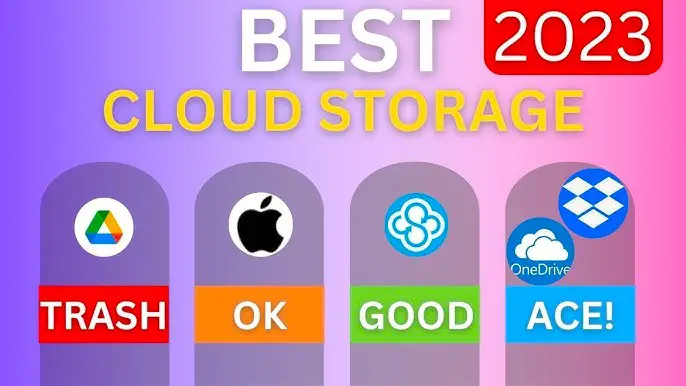Cloud storage is a data storage model where digital content like documents, photos, videos, and various media formats are securely stored on remote or cloud-based servers managed by third-party providers. It enables the seamless transfer of data to an offsite storage infrastructure, granting convenient access whenever necessary. This article explores the fundamental concepts of cloud storage.
In today’s digital age, where data is the lifeblood of businesses and individuals alike, the concept of cloud storage has become increasingly prevalent. Cloud storage offers a convenient and secure way to store, access, and manage data over the Internet. In this comprehensive guide, we will delve into the world of cloud storage, covering its definition, types, benefits, and best practices.
What Is Cloud Storage? Definition, Types, Benefits, and Best Practices
Explore the world of cloud storage: its definition, types, benefits, and best practices. Learn how to secure your data effortlessly in the cloud. Discover the convenience and security of cloud storage solutions.
1. Introduction to Cloud Storage
Cloud storage is a technology that allows users to store their data on remote servers, which can be accessed via the Internet. Instead of saving files and documents on local devices like computers or external hard drives, cloud storage users can upload their data to a remote server maintained by a third-party provider. This data can then be accessed from anywhere with an internet connection.
2. Types of Cloud Storage
2.1 Public Cloud Storage
Public cloud storage is provided by third-party service providers and is accessible to the general public. Users can store their data on servers maintained by these providers, and the data is hosted in a shared environment. Popular examples of public cloud storage providers include Amazon Web Services (AWS), Google Cloud Storage, and Microsoft Azure.
2.2 Private Cloud Storage
Private cloud storage, as the name suggests, is dedicated to a single organization or user. It offers a higher level of control and security compared to public cloud storage. Organizations often choose private cloud storage for sensitive data that requires strict access control and compliance with regulations.
2.3 Hybrid Cloud Storage
Hybrid cloud storage combines elements of both public and private cloud storage. It allows data to be stored in a mix of on-premises infrastructure, private clouds, and public clouds. This flexibility enables organizations to optimize their storage solutions according to their specific needs.
3. Benefits of Cloud Storage
3.1 Accessibility and Convenience
Cloud storage provides unparalleled accessibility to your data. Whether you’re at the office, at home, or on the go, you can access your files and documents from any device with an internet connection. This convenience enhances productivity and collaboration among users.
3.2 Cost-Efficiency
Using cloud storage can be cost-effective for businesses. Instead of investing in and maintaining extensive on-premises infrastructure, organizations can pay for cloud storage services on a subscription basis. This eliminates the need for large upfront capital expenditures.
3.3 Scalability
Cloud storage solutions are highly scalable. As your storage needs grow, you can easily expand your cloud storage capacity without significant hardware investments. This scalability is particularly valuable for businesses experiencing rapid growth.
3.4 Disaster Recovery
Cloud storage providers typically have robust disaster recovery mechanisms in place. Your data is regularly backed up and stored in multiple locations, reducing the risk of data loss due to hardware failures or disasters.
4. Best Practices for Cloud Storage
4.1 Data Encryption
Encrypting your data before it is uploaded to the cloud adds an extra layer of security. It ensures that even if unauthorized access occurs, the data remains unintelligible without the encryption key.
4.2 Regular Backups
Regularly back up your data to the cloud to prevent data loss. Automated backup solutions can help ensure that your critical data is always up to date and protected.
4.3 Access Control
Implement strict access controls to limit who can access and modify your data in the cloud. Role-based access control (RBAC) is an effective way to manage permissions.
4.4 Compliance with Regulations
If your organization deals with sensitive or regulated data, ensure that your cloud storage solution complies with relevant regulations, such as GDPR or HIPAA.
5. Conclusion
Cloud storage has revolutionized the way we store and manage data. Its accessibility, cost-efficiency, scalability, and disaster recovery capabilities make it a vital tool for individuals and businesses alike. By following best practices such as data encryption, regular backups, access control, and compliance with regulations, users can maximize the benefits of cloud storage while ensuring the security of their data.
6. Frequently Asked Questions (FAQs)
Q1: Is cloud storage safe?
Cloud storage can be secure, but it’s essential to implement security measures like encryption and access control to protect your data.
Q2: Can I access my cloud-stored data offline?
Some cloud storage providers offer offline access to selected files, but most cloud services require an internet connection for full access.
Q3: What is the difference between public and private cloud storage?
Public cloud storage is shared among multiple users, while private cloud storage is dedicated to a single organization or user, offering more control and security.
Q4: How do I choose the right cloud storage provider?
Consider factors like your data storage needs, budget, and security requirements when selecting a cloud storage provider.
Q5: Is it necessary to back up data stored in the cloud?
Yes, regular data backups are essential to protect against data loss, even in the cloud.
